
“There is no higher honour than membership of the Communist Party.
“The noble aim of our Party is to establish Socialism and abolish the right of one man to rob another of the fruits of his labour. This makes our Party different from all others.
“Nowhere in the world has Socialism been established except where the working class has been led by the Communist Party.” Forging the Weapon: A Handbook for Members of the Communist Party
British Communists
A-E |
F-J |
K-M |
N-Q |
R-U |
V-Z
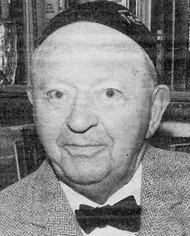 Robin Page Arnot (1890-1986)
Robin Page Arnot (1890-1986)
Arnot was a founding member of the CPGB in 1920. He was imprisoned for being a conscientious objector during the First World War, and imprisoned again in 1925 before the General Strike. He was a Central Committee member and regular contributor to CPGB periodicals. (biography)
 Thomas Bell (1882-1944)
Thomas Bell (1882-1944)
Bell represented the Socialist Labour Party at the negotiations that led to the creation of the Communist Party of Great Britain (the Unity Convention) in 1919. Active in the Shop Stewards’ movement, the Clyde Workers’, and president of the Scottish Ironmoulders’ Union, Bell was experienced in working class struggle and was the first representative of the CPGB to be appointed to the executive committee of the Comintern. (biography)
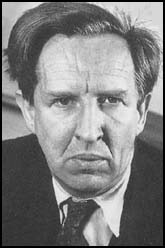 J. D. Bernal (1901-1971)
J. D. Bernal (1901-1971)
Bernal was an Irish-born scientist and communist educated at Bedford School and Emmanuel College, Cambridge, where he studied both mathematics and science for a B. A. degree in 1922. He joined the Communist Party in 1923, but left in 1933. (biography)
 Benjamin F. Bradley (1898-1957)
Benjamin F. Bradley (1898-1957)
A metalworker who was sent to India in 1927 to help organise trade unions in India. In 1929 Bradley was arrested, along with several others, for organising a rail strike. The court case became known as the Meerut Conspiracy Trial, 1929-1933. Bradley was sentenced to ten years penal transportation.
 Emile Burns (1889-1972)
Emile Burns (1889-1972)
A prolific writer and Marxist educator, Emile Burns was a long-time member of the Executive Committee and the Political Committee of the CPGB. Burns is considered a founding member of the Party, although there is debate as to the exact date he joined the Party. In 1926 he was involved with the St. Pancras Strike Committee during the General Strike of 1926. In the early 1930s he helped organise Party groups amoung London bus workers, and, later in the decade, worked with Harry Pollitt and Victor Gollancz to develop the Left Book Club. Burns was particularly interested in National Liberation struggles and chaired the Party's National Cultural Committee.
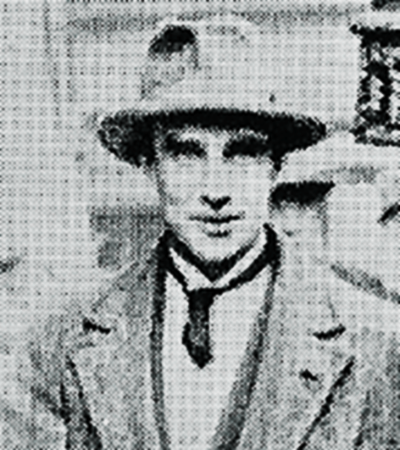 John Ross (J. R.) Campbell (1894-1969)
John Ross (J. R.) Campbell (1894-1969)
Part of the Shop Stewards’ movement and editor of their paper, The Worker, Campbell was a founding member and leader of the CPGB. A prolific writer, Campbell edited various CPGB newspapers including Worker’ Weekly and the Daily Worker. (biography)
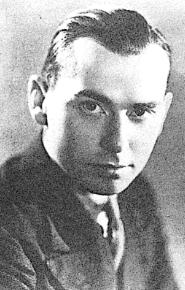
Christopher Caudwell (1907-1937)
Caudwell joined the Communist Party in late 1935 and soon became a dedicated grassroots activist. In December 1936, he left for Spain to join the International Brigade. Caudwell was killed by the fascists in the valley of Jarama February 12th, 1937, during his first day of battle. He was last seen firing a machinegun, covering the retreat of his section from a hill about to be taken by the Moors. (biography)
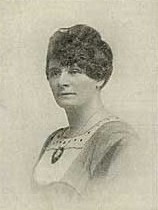
Helen Crawfurd (1877-1954)
Joined the newly-formed Communist Party in 1921, become an Executive Committee member, set up the Women’s Department of the Communist Party in January 1922. Edited the women’s page of Communist, the Party’s journal. She remained an illustrious member of the Communist Party right to the end of her life in 1954. (biography)
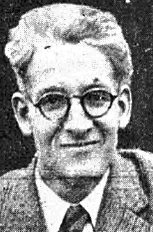 Clemens Palme Dutt (1893-1970s?)
Clemens Palme Dutt (1893-1970s?)
Elder brother of Rajani Palme Dutt, and foundation member of the Communist Party. Clemens was intimately associated with the Comintern’s bureau of Indian Affairs and the British Section of the League Against Imperialism. Over the years he edited various publications and translated a number of significant works into English.
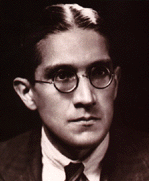 Rajani Palme Dutt (1896-1974)
Rajani Palme Dutt (1896-1974)
A member of the Independent Labour Party before joining the Communist Party in 1920, Dutt was a member of the Executive Committee of the CPGB from 1923 until 1965. He was a prolific writer and an influential party theoretician who also helped establish the Communist Party of India. He remained a staunch defender of the Soviet Union until his death in 1974. (biography)
 Ralph Fox (1900-1937)
Ralph Fox (1900-1937)
A founding member of the CPGB, Fox came to communism via the “Hands of Russia” Committee. In 1925 he moved to Moscow and began work for the Comintern. A member of the International Union of Revolutionary Writers, he authored several books and wrote articles for the Left Review and the Daily Worker. He was killed on January 3, 1937 fighting the fascists during the Spanish Civil War. (Tribute by Pollitt)
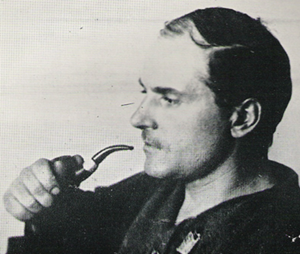 William Gallacher (1881-1965)
William Gallacher (1881-1965)
Leader of the Shop Stewards’ Movement in Britain in the early part of the 20th Century. President of the Clyde Workers Committee during the great struggles of 1916, imprisoned twice during the war for strike activities. He attended the Second Congress of the Communist International in August 1921, and on his return helped form the Communist Party of Great Britain. (biography)
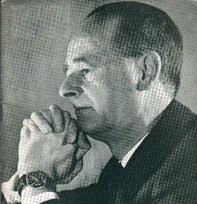 John Gollan (1911-1977)
John Gollan (1911-1977)
Gollan joined the Party’s Young Communist League when he was 16. He edited the YCL’s Young Worker, later named Challenge. He held a number of leadership positions including National Organizer, General Secretary of the YCL, Assistant General Secretary and, from 1956-1977, General Secretary of the CPGB. (biography)
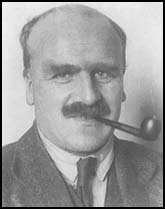
J.B.S. Haldane (1892-1964)
As one of many “fellow-travellers” of the Communist Party among the British intelligentsia in the 1930s, he wrote many articles for the Daily Worker, but only joined the Communist party in 1937. He left in 1950, shortly after having considered standing as a Communist Party candidate for Parliament. The rise of Lysenko’s pseudo-science, with the overt support of Stalin was the principal factor which turned Haldane away from the Communist Party. (biography)
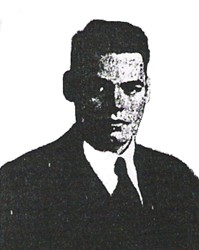 Walter (Wal) Hannington (1896-1966)
Walter (Wal) Hannington (1896-1966)
Hannington was a member of British Socialist Party, and active in the Shop Stewards’ Movement; delegate to London District Council of Toolmakers’ Society during the First World War. Instrumental in forming the London District Council of Unemployed in 1920, and was elected London Organiser. Hannington played a leading role in forming the National Unemployed Workers’ Committee Movement in 1921, and was elected National Organiser. Organised the Great National Hunger March of 1922-23. He was a foundation, and life-long, member of the Communist Party and Executive Committee member.
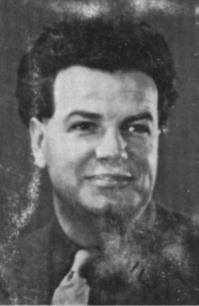
Christopher Hill (1912-2003)
After joining the Party around 1935, Hill spent a year in the Soviet Union, during which he was very ill, but also formed a lasting affection for Russian life. His involvement with communism came to a crisis after the Soviet invasion of Hungary in 1956. (biography)
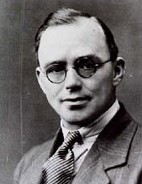 Arthur Horner (1894-1968)
Arthur Horner (1894-1968)
A founding member of the Communist Party and active trade unionist, Horner held many senior positions in the Party. He helped establish the Miners’ Minority Movement in the early 1920s, and in 1926 became a member of the execuive committee of the Miners’ Federation of Great Britain. In 1944 he was appointed general secretary to the National Union of Mineworkers and remained in that position until 1959.
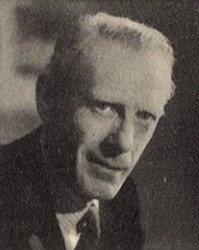 J. F. Horrabin (1884–1962)
J. F. Horrabin (1884–1962)
Writer and cartoonist, Horrabin was an early member of the Communist Party, but left soon after for the Labour Party and, later, the Socialist League. As a CPGB member, Horrabin was a frequent contributor of hand-drawn maps to The Communist.
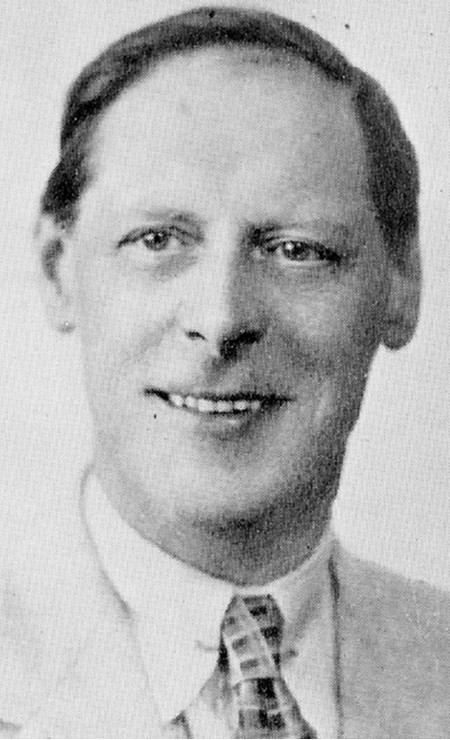 Albert Inkpin (1884-1944)
Albert Inkpin (1884-1944)
National Secretary of the British Socialist Party until it joined with others to form the Communist Party of Great Britain in 1920. With a brief interruption in 1922, Inkpin served as General Secretary until he was replaced by Harry Pollitt in 1929. (biography)
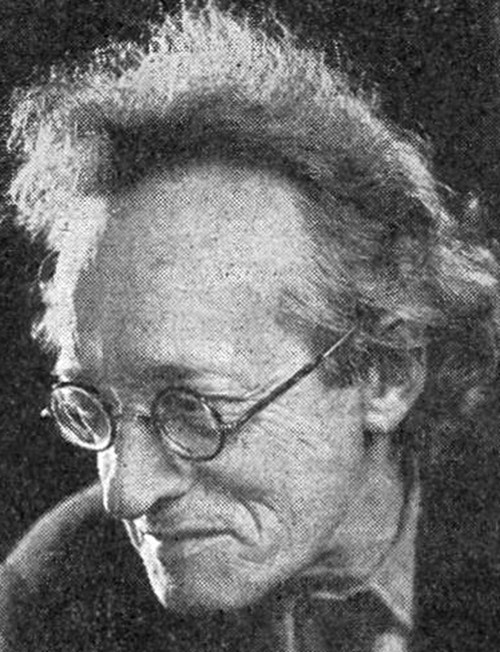 Thomas Alfred (T. A.) Jackson (1879-1955)
Thomas Alfred (T. A.) Jackson (1879-1955)
A working class intellectual, Jackson was a founder of the CPGB and executive committee member. (biography)
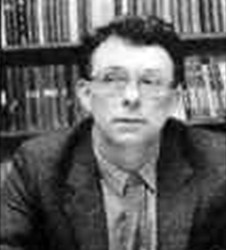 Alastair Montague (Monty) Johnstone (1928-2007)
Alastair Montague (Monty) Johnstone (1928-2007)
Teacher, writer and lecturer, Johnstone was a proponent of what became known as “Eurocommunism.” Johnstone joined the Young Communist League at aged 12, around 1940. After graduating from Christ Church, Oxford, in 1952 he edited the Young Communist Challenge until 1956. In the 1980s, Johnstone served on the Party’s Executive Committee, and opposed the dissolution of the Party in 1991. (biography)
 James Klugmann (1912-1977)
James Klugmann (1912-1977)
Klugmann joined the GPGB in 1933 while at Cambridge University. In 1940 he joined the Royal Army Service Corps and soon after transferred to the Special Operations Executive. Following the Second World War he spent the rest of his life working for the Communist Party on theoretical questions and in Marxist education.
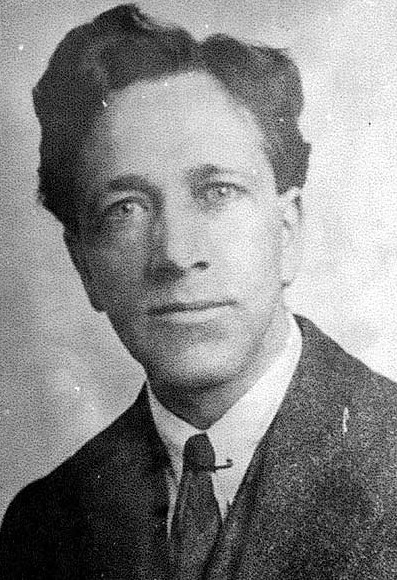 Arthur MacManus (1889-1927)
Arthur MacManus (1889-1927)
Along with Thomas Bell, MacManus was a Socialist Labour Party representative at the Unity Convention. Opposed to the First World War, he was an active trade unionist and leader of the Clyde Workers Committee. He was the GPGB's first chairman and sat on the Comintern's executive committee. His ashes were interred in the Kremlin wall in 1927. (biography)
 Tom Mann (1856-1941)
Tom Mann (1856-1941)
Secretary of the Independent Labour Party, and leader of the famous ‘dockers tanner’ strike in Britain, which ended in victory after receiving a huge donation from Australian unionists. He took a pacifist position during WWI and became a founding member of the British Communist Party in 1920. Leader of Red International of Labour Unions. (biography)
 Dora Montefiore (1851-1933)
Dora Montefiore (1851-1933)
Suffragist, feminist, international socialist and close communicating confidant of Alexandra Kollontai, Montefiore was elected to the provisional executive of the Communist Party of Great Britain at its founding conference. (Tribute)
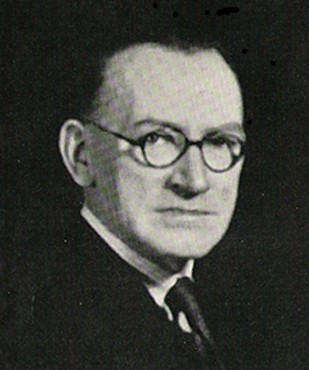 John Thomas (J. T.) Murphy (1888-1965)
John Thomas (J. T.) Murphy (1888-1965)
A member of the Amalgamated Society of Engineers and active trade unionist, Murphy was a representative of the Shop Stewards’ movement at the founding of the CPGB. He was an executive committee member of the CPGB and noted figure in Comintern and RILU matters who moved the resolution expelling Trotsky from the Comintern in 1927. In 1932, Murphy clashed with the Dutt-Pollitt leadership and resigned from the party. He went on to join the Socialist League. (biography)
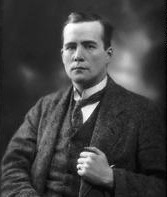 John Turner (J. T.) Walton Newbold (1888-1943)
John Turner (J. T.) Walton Newbold (1888-1943)
Walton Newbold joined the Communist Party in 1921 and was a member of the first Central Committee. In 1922 he was elected to the House of Commons, but lost his seat in 1923. The following year he resigned from the Party and rejoined the Labour Party.
 Cedar Paul (died 1972)
Cedar Paul (died 1972)
Paul was a member of the Independent Labour Party from 1912 to 1919, she then joined the Communist Party of Great Britain. Together with her husband, Eden Paul, she wrote and translated several books.
 Eden Paul (1865-1944)
Eden Paul (1865-1944)
Paul was a member of the Independent Labour Party from 1907 to 1919, he then joined the Communist Party of Great Britain. Together with his wife, Cedar Paul, he wrote and translated several books.
 William Paul (1884-1958)
William Paul (1884-1958)
Before helping to found the Communist Party, Paul was a member of the Socialist Labour Party in Glasgow and a respected Marxists theorist and tutor. He edited a number of official CPGB periodicals to include, Communist Review, broad left and Sunday Worker. (biography)
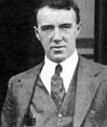 Harry Pollitt (1890-1960)
Harry Pollitt (1890-1960)
Pollitt joined the Communist Party of Great Britain in 1920. Elected General Secretary in 1929, he was forced to resign his position for supporting the British declaration of war on Nazi Germany. Reinstated in 1941, Pollitt remained General Secretary until illness forced him to retire in 1956. (biography)
 Marjorie Pollitt (1902-1991?)
Marjorie Pollitt (1902-1991?)
Born Marjorie Brewer, Pollitt was a teacher and activist who married Harry Pollitt in 1925.
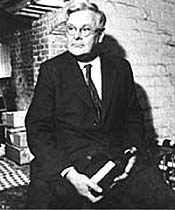 R. W. Postgate (1896-1971)
R. W. Postgate (1896-1971)
A founding member of the Communist Party, Postgate edited the Party’s weekly newspaper, The Communist. He left the Party in 1922 when the Communist International demanded that the CPGB obey its directives.
 Tom Quelch
Tom Quelch
The son of Harry Quelch, a significant figure in nineteenth century British Social Democracy, Tom Quelch was a foundation member of the Communist Party. Prior to the CP’s formation, Quelch was a member of the British Socialist Party and helped found The Call when the older members of the Party tried to turn it into a Social Patriotic organisation at the outbreak of WWI. He was a delegate to the Second Congress of the Comintern and participated in the Baku Congress of the Peoples of the East.
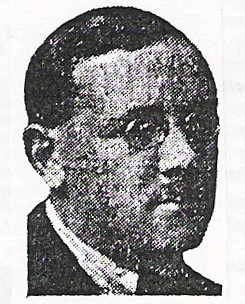 Andrew Rothstein (1898-1994)
Andrew Rothstein (1898-1994)
The son of Theodore Rothstein, Andrew Rothstein was a founding member of the CPGB and became a significant figure in British Communism. He translated many works from Russian to English, including segments of Lenin’s Collected Works. In the 1980s he was a critic of the drive to revisionism.
 Theodore Rothstein (1871-1953)
Theodore Rothstein (1871-1953)
Rothstein took part in founding of the C.P. in 1920. From 1921 to 1930 he was engaged in diplomatic work, starting with being the Soviet representative in Iran in 1921. He later became Director of the Institute of World Economy and World Politics and, from 1939, was an Academician, receiving the Order of Lenin. (biography)
 William Rust (1903-1949)
William Rust (1903-1949)
Rust joined the Party shortly after its formation in 1920 and quickly went on to hold prominent positions in the YCL and the Comintern. In 1939 he was part of a three-man secretariat, along with R. P. Dutt and Springhall, that took over Harry Pollitt’s responsibilities after he relinquished the Party’s General Secretaryship following the Nazi-Soviet Non-Aggression Pact and the subsequent “new line.” That same year he became editor of the Daily Worker and remained in that position until his death in 1949.
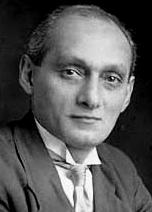 Shapurji Saklatvala (1874-1936)
Shapurji Saklatvala (1874-1936)
Born in Mumbai, India, Saklatvala was a member of the Independent Labour Party. He joined the CPGB after the ILP voted against affiliating with the Comintern. He was elected to Parliment in 1922 as a Labour Party candidate. He lost his seat the next year, but returned to Parliment in 1923 as a CPGB candidate. (biography)
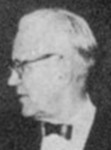 Mark Starr (1894-1985)
Mark Starr (1894-1985)
Starr was a labour educator and active proponent of Esperanto. An early member of the Communist Party, he was unable to conform to Party discipline and thus abandonded the Party, and radical politics, a few years after joining the CPGB for the Labor Party. He stood as a Labour candidate for the Wimbledon constituency in the general elections of 1923 and 1924.
 Beth Turner
Beth Turner
Executive Committee member and National Women’s Organiser.
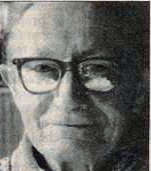 Bill Wainwright (1908-2000)
Bill Wainwright (1908-2000)
Writer, editor and pamphleteer, Wainwright was elected to Assistant General Secretary of the Party in 1956. (Obituary)
 Ellen Wilkinson (1891-1947)
Ellen Wilkinson (1891-1947)
Founding member of the Communist Party, Wilkinson also attended the founding Conference of the Red International of Labour Unions (Profintern). She left the Party in 1924.
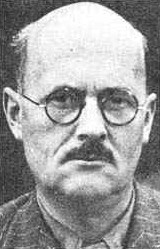 Tom Wintringham (1898-1949)
Tom Wintringham (1898-1949)
Wintringham joined the Communist Party in 1923, and was one of the twelve CP leaders arrested on charges of “seditious conspiracy” prior to the General Strike of 1926. In 1936, he went to Spain to report on the civil war. While there, he joined the Republicans and eventually became the commander of the British Battalion of the International Brigade. He left the Party in 1938 when his second wife, Kitty Bowler, was accused of being a Trotskyite spy.